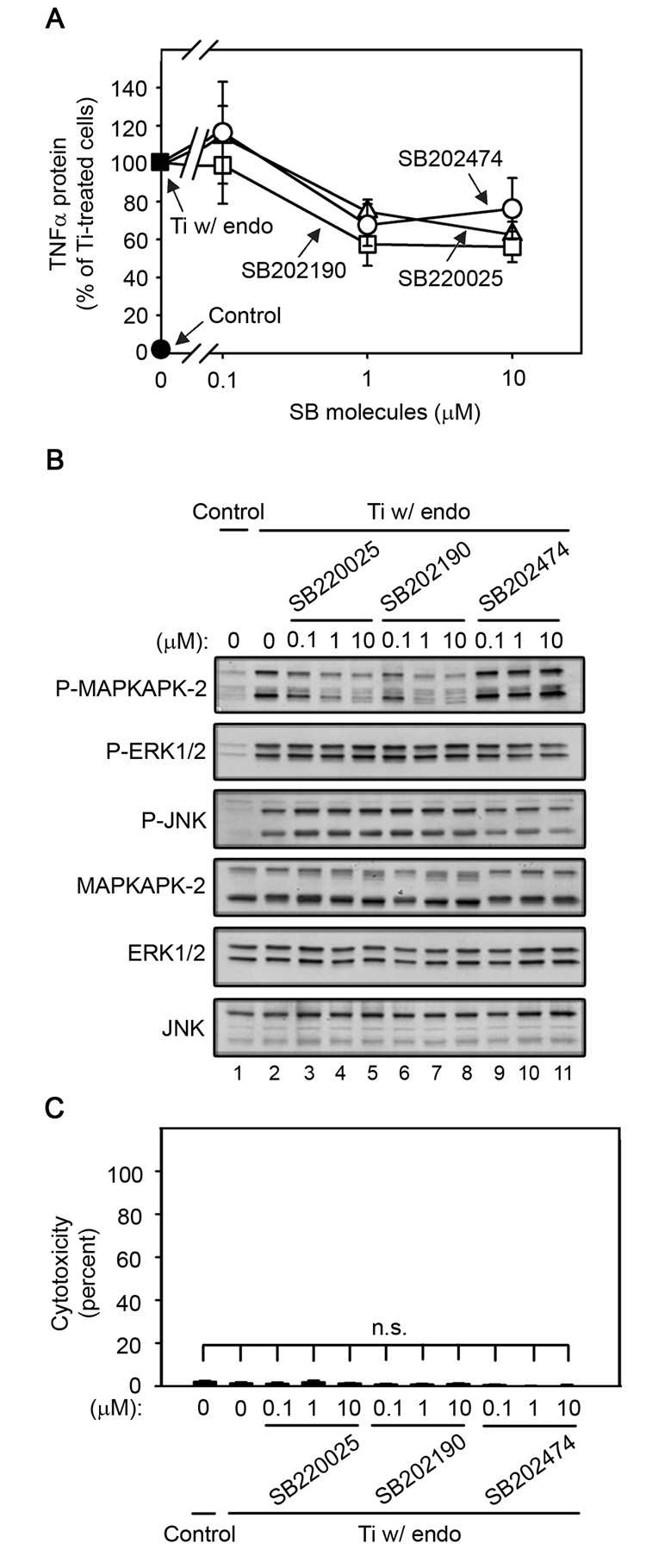Fig. 5.
p38α/β activation is not required for titanium particle-induced TNFα production by RAW264.7 macrophages since SB220025 and SB202190 inhibit TNFα production with dose-dependencies similar to the relatively inactive analogue, SB202474 (A), while only SB220025 and SB202190 inhibit p38 activity as assessed by (B) following stimulation by titanium particles with adherent endotoxin. All three analogues do not induce cytotoxicity (C). TNFα protein (A) and cytotoxicity (C) were measured at 90 minutes, while signal transduction (B) was assessed at 30 minutes since preliminary experiments showed that MAPKAPK-2 phosphorylation was maximal at this time (data not shown). All groups received a mixture of vehicle controls, such that all contained 0.04% PBS and 0.2% methanol. (A) TNFα protein was measured in conditioned media by ELISA following stimulation with titanium particles with adherent endotoxin in the absence (closed square) or presence of indicated concentrations of SB220025 (open triangles), SB202190 (open squares), or SB202474 (open circles). TNFα protein was also measured in conditioned media collected following culture without titanium particles or inhibitor (closed circle). Results (mean ± SEM of four experiments) are presented as a percentage of TNFα protein following stimulation with titanium particles with adherent endotoxin in the absence of inhibitors (closed square). There is no statistical difference between the three analogues at any of the concentrations. (B) MAPK activation was assessed in whole cell lysates as described in Figure 1B. Western blots are from the most representative of the four experiments pooled in (A). (C) Cytotoxicity results are presented as the mean ± SEM of the four experiments pooled in (A).

